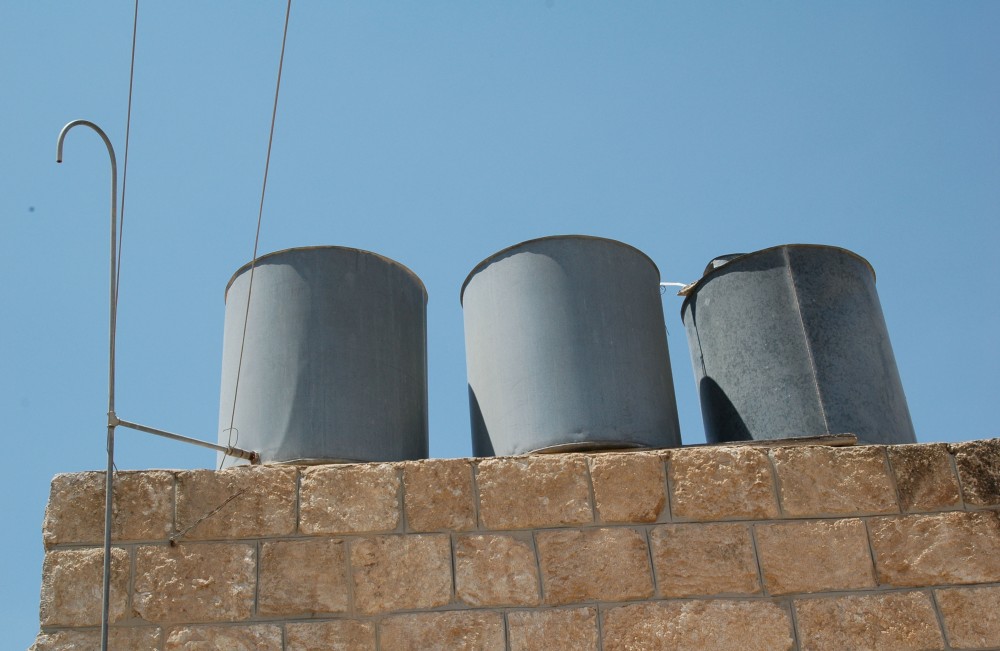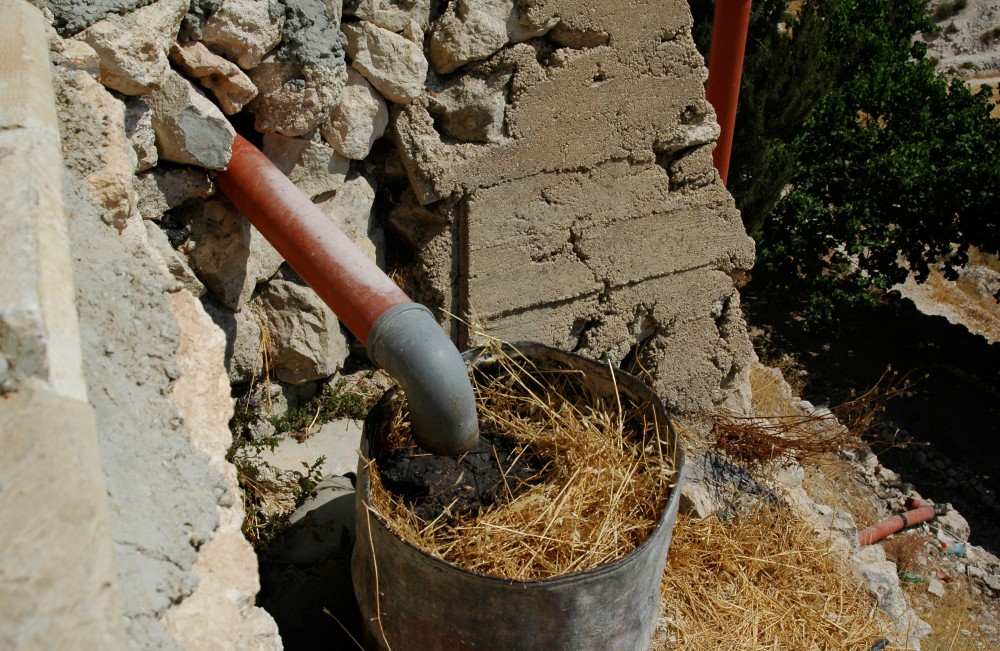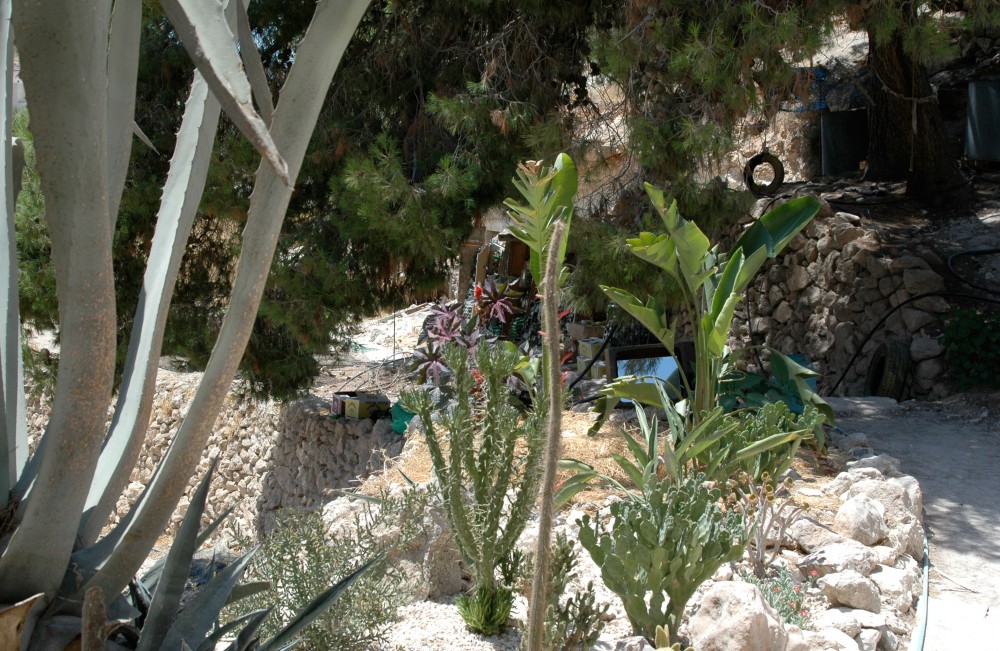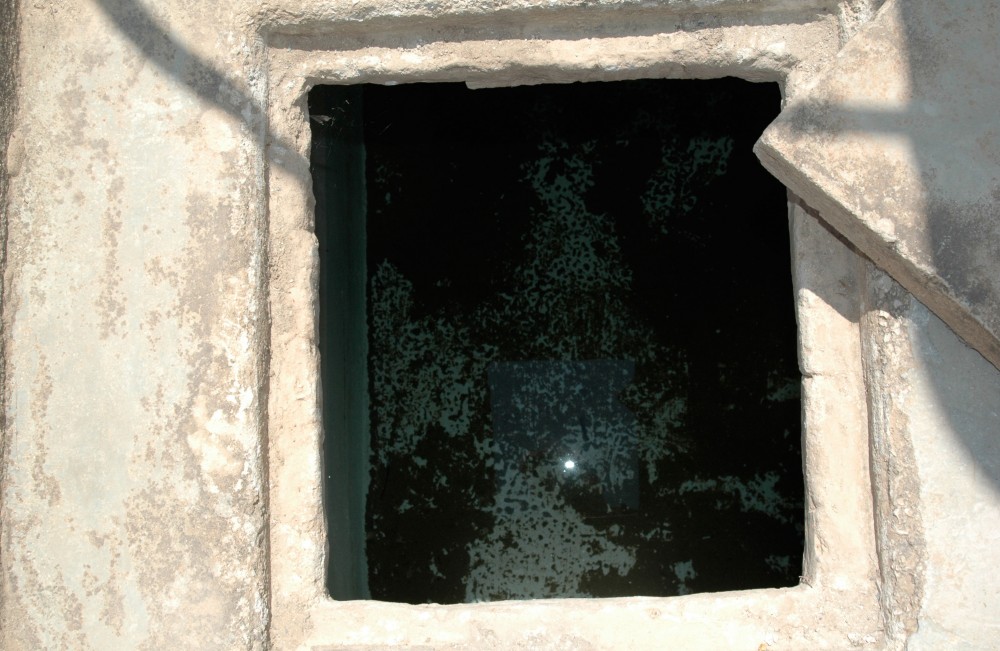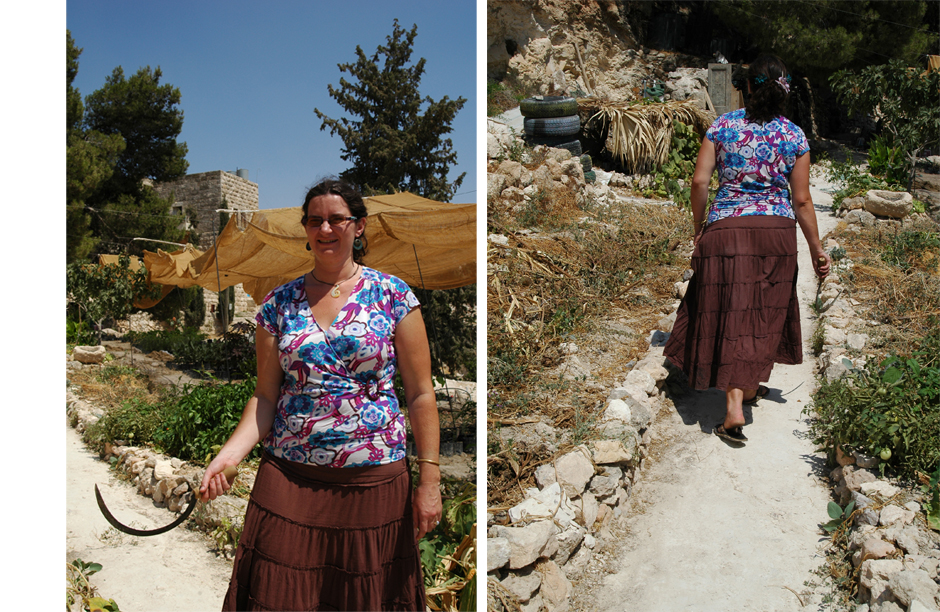PAST ISSUES

ISSUE No.1 WATER
In our premier issue we start with the source of all life: water. The Water Issue travels to the ends of the earth and beyond - from Central Africa, to Sweden, to the Palestinian Territories, and even into Outer Space. A movie producer takes a break from the high stress world of Hollywood to learn to surf - a 1 week vacation turns into 1 year as she becomes a student of water the "greatest teacher I have ever known" - Philippe and Alexandra Cousteau share the Legacy of their grandfather's love for the ocean - the obsession with bottled water falls under scrutiny...and more.
Lessons in Water Conservation from The Tortoise Garden
By Anna Louie Sussman*The names in this article have been changed to ensure their safety
BEIT SAHOUR, OCCUPIED WEST BANK: I arrived at Bustan Qaraaqa (“the Tortoise Garden”) sweaty and dusty, after a drive from Ramallah through a landscape the color of dry. A four-acre farm in the Occupied West Bank, it is run by three friendly hippies and staffed by a rotating cast of volunteers, usually visiting from abroad, who come for a few days or weeks at a time to learn about the principles and practices of permaculture.
My first move was to excuse myself to change from the black pants I was wearing into a pair of slightly oversized cut-off cargo shorts.
“That’s better,” commented Lyra, the dreadlocked “concierge”, greeting my dingy, baggy, raiment approvingly. “Can I make you a rope belt?” she offered.
It was a fitting welcome to a model farming community of the kind that once thrived in Australia in the 1970s, where permaculture was invented by the ecologist Bill Mollison. The law that they live by can be broken down into four main principles: minimal consumption, recycling and reinvesting waste products, redistribution of surplus, and self-reliance.
The staff and guests at Bustan Qaraaqa aim to demonstrate, not just suggest, an alternative way of life, even under the most unjust of circumstances (occupation, say). Alice Gray, 28, and her colleagues established the farm in April 2008, renting the house and a four-acre parcel of land that sprawls over a valley from their neighbor Hanna Saad, after both had lain abandoned for more than forty years.
Already located in a water-scarce region, the Occupied West Bank also suffers from political constraints on its water supply. According to a report released in April 2009 by the World Bank, Palestinians on average get only a quarter of the water that Israelis do. On the day I arrived, the pipes at Bustan Qaraaqa had been cut off for a week, a situation Gray said was “completely normal” for them.
“It’s totally absurd,” Gray, who has an MPhil. in climate change and plant-soil dynamics, says. “No other country in the Middle East, especially one that has invested so much money in development, has this kind of situation.”
The supply lines that do reach Palestinians in the West Bank are often run by the Palestinian Authority, in conjunction with Mekorot, Israel’s national water company.
“It was billed as a great water cooperation, but in fact it’s created total water vulnerability,” Gray scoffs.
Ironically, the same political and environment factors that make daily life difficult for Palestinians offered Gray and her colleagues uniquely challenging conditions in which to practice and evaluate water conservation techniques. Gray, originally from Gillingham, England, was working as a consultant for a Palestinian aid organization when she realized that showing by example would be a more effective way to make change than writing report after report. With several friends who had been with her at Bangor University, she founded Bustan Qaraaqa.
Today, she, Tom, one of the founders, and the recently-arrived Lyra form the core. Volunteers, anywhere from three to more than a dozen at a time, float in and out, paying around seventeen dollars per night. Potential visitors will find on the Bustan Qaraaqa website a link to a humble wish list: a six-dollar book on Palestine, a donation of a hundred dollars to fill the large cistern they’ve completed (with several months to go before rainy season), and “Marmite! Always Marmite!”
When summer hits, and it hits hard, Israel often turns off the water supply to Palestinian villages in order to keep sufficient pressure for settlers living nearby. While the settlers bask in power showers, villagers are pushed to untreated springs, which, as happened in Qalqiya in 2005, can lead to outbreaks of waterborne illnesses, particularly in children.
To cope with this seasonal shortage, Gray and her colleagues utilize several nifty tricks to collect and store rainwater, as well as devices to reduce their water usage. The goal is to “get off the grid” completely by this winter, when the rainy season comes. These include a composting toilet, in which human waste is not flushed down a pipe, but rather gathers in a box below the toilet seat to be later mixed with straw and used for fertilizer. According to Gray, replacing a flush toilet with a composting toilet reduces household water consumption by thirty liters per person per day as well as producing significant quantities of valuable mulch; little wonder, then, that they were in fact widely used in Palestine for centuries, before fading out of fashion in the last half-century. When they first moved into the house, they were pleased to find their compost collection kick-started with “fifty years of mature Saad family manure.”
An elementary subterranean greywater system, in which household wastewater, or “grey” water, is reused for irrigation, was also one of the first things they installed. “It’s so obviously a good idea,” says Gray of their rudimentary system.
Greywater systems work by rechanneling used water that is “grey”, meaning neither fresh from the tap (“white”) nor contaminated with feces (“black”). It’s the water in the sink after you’ve done a load of dishes, or the water that runs down the drain as you’re brushing your teeth; and it constitutes fifty to eighty percent of residential wastewater, according to www.greywater.net. Under any circumstances, it’s a shame to waste it, since it’s more than suitable for watering the lawn or at least for flushing the toilet. In Occupied Palestine, in a dry valley where water supplies are cut off for weeks at a time, it’s a scandal.
Gray led me on a tour of the premises, gesturing at the pipes that led from a water tank to a sink outside the toilet and then down into the ground, where the subterranean pipes run along the land’s natural slope to a patch of succulents (“They thrive off urine,” Gray says). She took me to the roof and showed me the twelve-cubic-meter rainwater collection tank there, and some sunflower seeds spread out on a cloth to dry, which seemed to be emitting a fragrance reminiscent of a New York subway underpass, or an alley full of drunks. I mentioned the smell, which she reassured me was not the seeds but rather Tom’s urine bucket, which had not been emptied for what can only be described as “too long,” especially given that there were a bunch of cacti downstairs looking forward to its contents.
The water tanks on the roof service the kitchen sink and the shower, whose pipes then run through a gravel and straw filter, eventually watering an impressive tangle of mint that has been proliferating since Gray planted it in May, and of which she is terribly proud. The filter is essentially a large metal can filled with gravel, on top of which is piled about a foot of straw.
“It’s an idiot’s filter. Anyone can build it,” she says.
The filter catches grease, hair, and other unsavouries that elude the drains in the house. Gray changes it every two weeks, and it, too, becomes part of the compost and fertilizer cycle.
The greywater system actually only provides about half of the farm’s irrigation needs, because the household’s water use is very low, since the most basic way to combat water scarcity is to use less water. The rest of the water used for farming comes from rainwater storage tanks in the parking lot, and a ninety-cubic-meter tank in the valley that is currently hosting a few lonely tilapia.
I came away glowing with hope, tempted, kind of, to turn my back on society, shack up with the hippies and live out my days under the fig trees. The biggest factor holding me back, in fact, was that composting toilet which, despite the poetry plastered on the walls and its noble rationale, would take a lot of getting used to.
